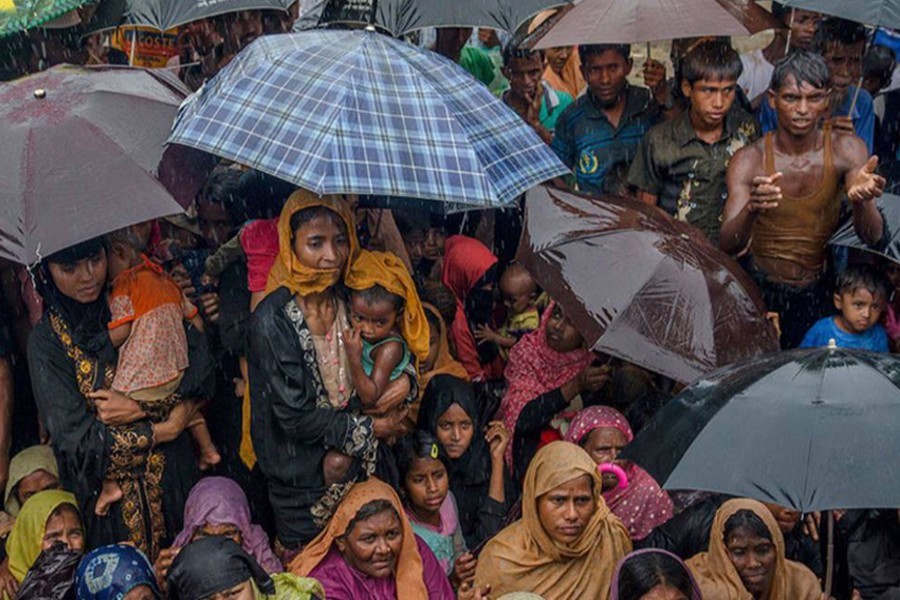Inter Sector Coordination Group (ISCG) partners - UN agencies, local, national and international NGOs with the government of Bangladesh have stepped up their efforts to respond to priority COVID-19 needs in local communities and for Rohingyas in Cox’s Bazar district.
The UN agencies along with other humanitarian and development partners are supporting the government efforts to expand existing isolation and treatment capacities and construct new facilities in and nearby the camps, to serve both refugees and local Bangladeshi communities, taking into account gender considerations, said the UNHCR on Sunday.
No cases of COVID-19 have been confirmed by the Institute of Epidemiology, Disease Control and Research (IEDCR) in the Rohingya camps until April 26, reports UNB citing a joint humanitarian community media release issued by UNHCR.
The ISCG partners called for additional funding support and international solidarity to create the conditions and mobilise the resources necessary to ensure an adequate COVID-19 response, to fight the pandemic and reduce the risks for local communities and Rohingyas.
Only critical services are continuing in the camps, in line with the Directive of the Refugee Relief and Repatriation Commissioner (RRRC).
These include health, nutrition, food and cooking fuel distribution, hygiene promotion, water and sanitation activities and quarantine of new arrivals, among others.
In efforts to reduce the risk of transmission of COVID-19 to the camps, humanitarian partners have significantly limited movements to the area, keeping in mind the public health objective of the Government.
UN agencies and NGOs are also helping to increase the response capacity in government health facilities such as Sadar Hospital, and supporting existing facilities at Ramu and Chakaria through refurbishments and construction of isolation spaces, staffing support, and provision of medical equipment, said the media release.
Health Sector partners are boosting stocks of medical supplies and equipment, including personal protective equipment (PPE) for frontline health workers’ safety, who play a crucial role in the coronavirus response in the District.
However, despite progress made in many areas in a short time, more work remains to meet critical needs for COVID-19 preparedness and response in the District, especially related to PPE for health workers and caregivers, as well as ventilators and oxygen for intensive care treatment.
Rohingya communities face an even greater risk of rapid transmission of the virus, due to the limited health infrastructure available and in light of the congested conditions in which they live, in one of the most densely populated camps in the world, said the media release.
Despite great efforts by host community and refugee volunteers to share pertinent COVID-19 messages, the lack of internet connectivity remains a key impediment to ensuring access to reliable information.
It is crucial that connectivity is re-established in the Rohingya camps and adjacent host communities, to allow rapid access to information which can help fight COVID-19, as well as ensure preparedness in view of the imminent cyclone and monsoon season, said the media release.
The ongoing lockdown, which is crucial to contain the outbreak, has impacts on the livelihoods and food security for the most vulnerable Bangladeshis, particularly those working in agriculture and other informal sectors.
In line with the government priorities, collective efforts are necessary to protect the food supply chain and support agricultural production to avoid a major food crisis and safeguard the most at risk, said the humanitarian community.
The humanitarian community, through its Food Security Sector, has provided food assistance, cash support, and agricultural inputs to households in Ukhiya, Teknaf, Cox’s Bazar Sadar, and Ramu, and plans to extend support to extremely vulnerable Bangladeshis in all upazilas in the district.


